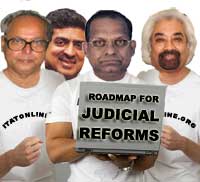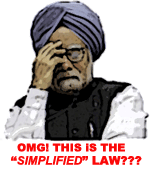The author agonizes that though four long years have elapsed since the controversy over the alleged corruption in the Tribunal broke out, nothing tangible appears to have been achieved. He warns that an important issue like this cannot be left unresolved for too long as it will otherwise begin to undermine the taxpayer’s confidence in the great Institution. Instead, the Government should take proactive steps to bring the truth in the open and the best way to do it is to appoint an experienced Judge to conduct an impartial probe, he says. He also implores the Law Minister to take a speedy decision over the long-pending issue of appointment of a permanent President and filling up vacancies in the posts of Sr. Vice Presidents
(a) To initiate the proposal of appointing, permanent President of ITAT, Senior Vice President, and Vice-Presidents by the selection panel:
The Income Tax Appellate Tribunal, which was founded on 25th January, 1941 will be entering into 73 years of its existence, by 25h January, 2013. The Income tax Appellate Tribunal is also referred as mother Tribunal of all the Tribunals of our country. However, it is very unfortunate that ever since, the former President Shri Vimal Gandhi retired on 3-6-2010, the Ministry of Law and Justice of Government of India, for reasons best known to them has not initiated the proposal to appoint a Permanent President to this premier institution.



